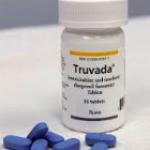Until COVID-19, the first year of medical school included an anatomy course where the textbook was secondary to the real teacher, the cadaver you and your colleagues were about to dissect.
intellectual property
In the vast majority of cases, Lauer reported, the person being investigated has been an Asian man in his 50s. Some three-quarters of those under investigation had active NIH grants, and nearly half had at least two grants.
The early 1990s were known as the dark days of AIDS. After more than a decade of intensive research, the death rate from HIV infection remained at 100%.
The protection of intellectual property is vital to innovation. If anyone can just take something you created -- be it a song or a drug -- without proper compensation, there would be little reason to develop new things.
The protection of intellectual property is one of the biggest challenges facing the technology industry.







